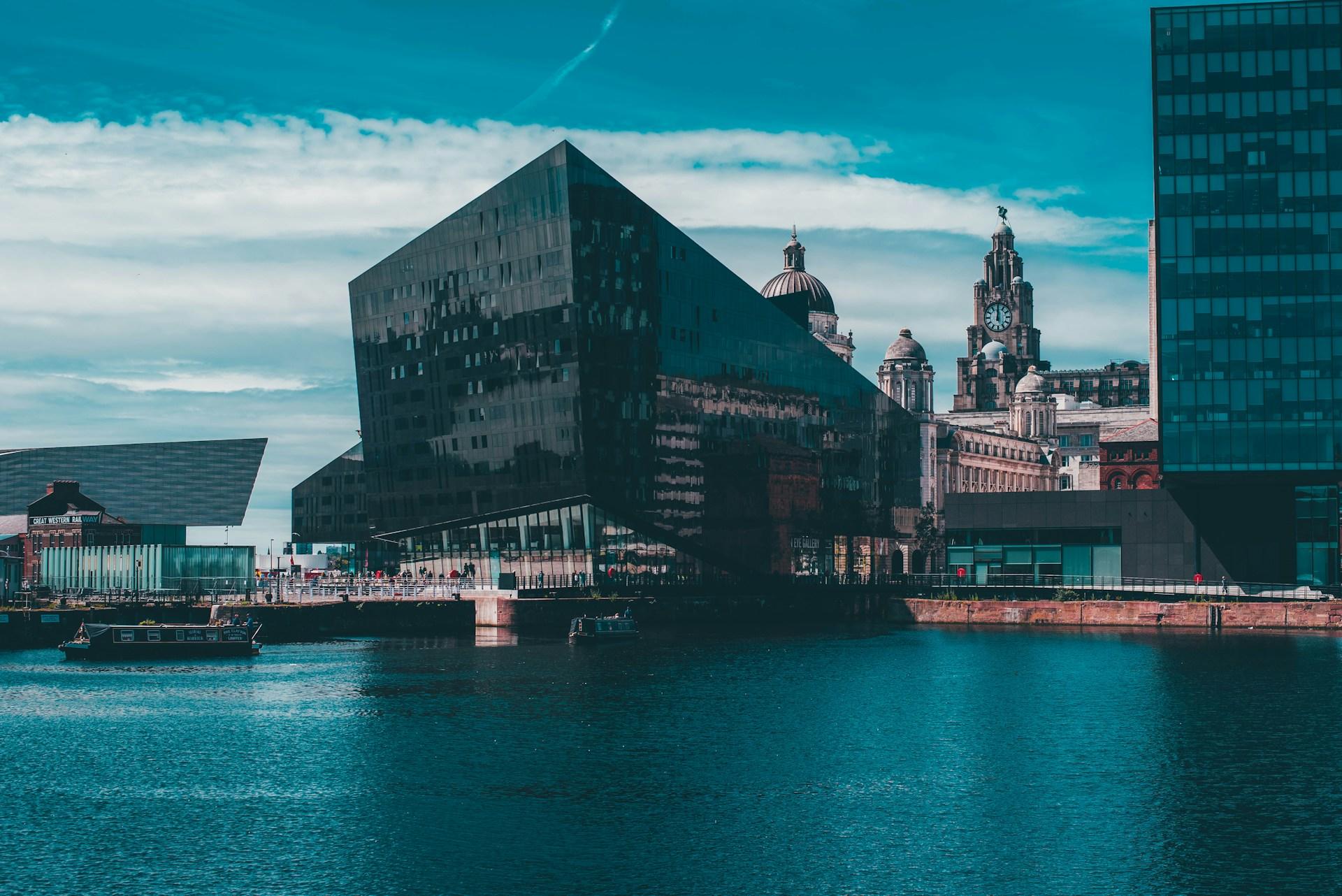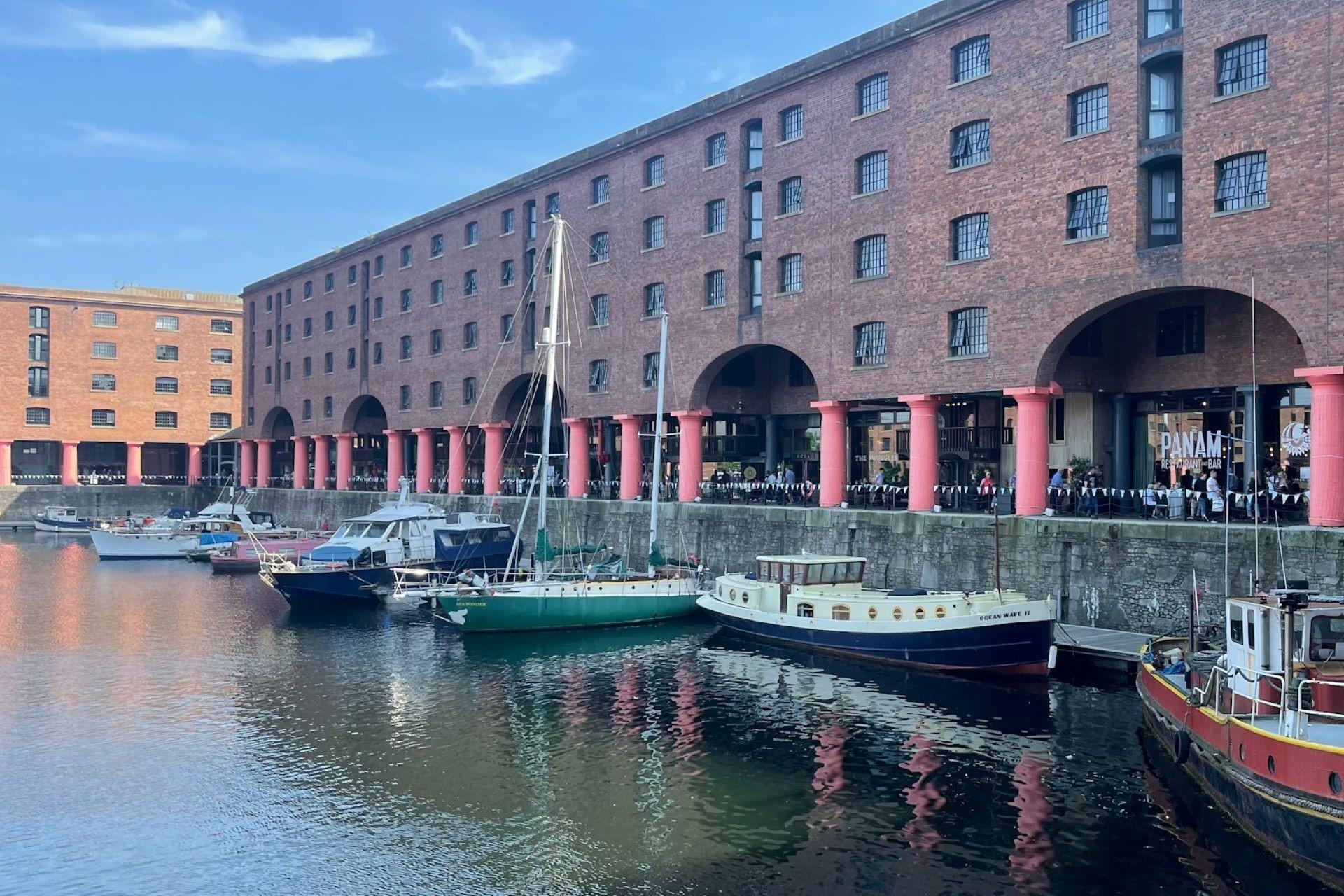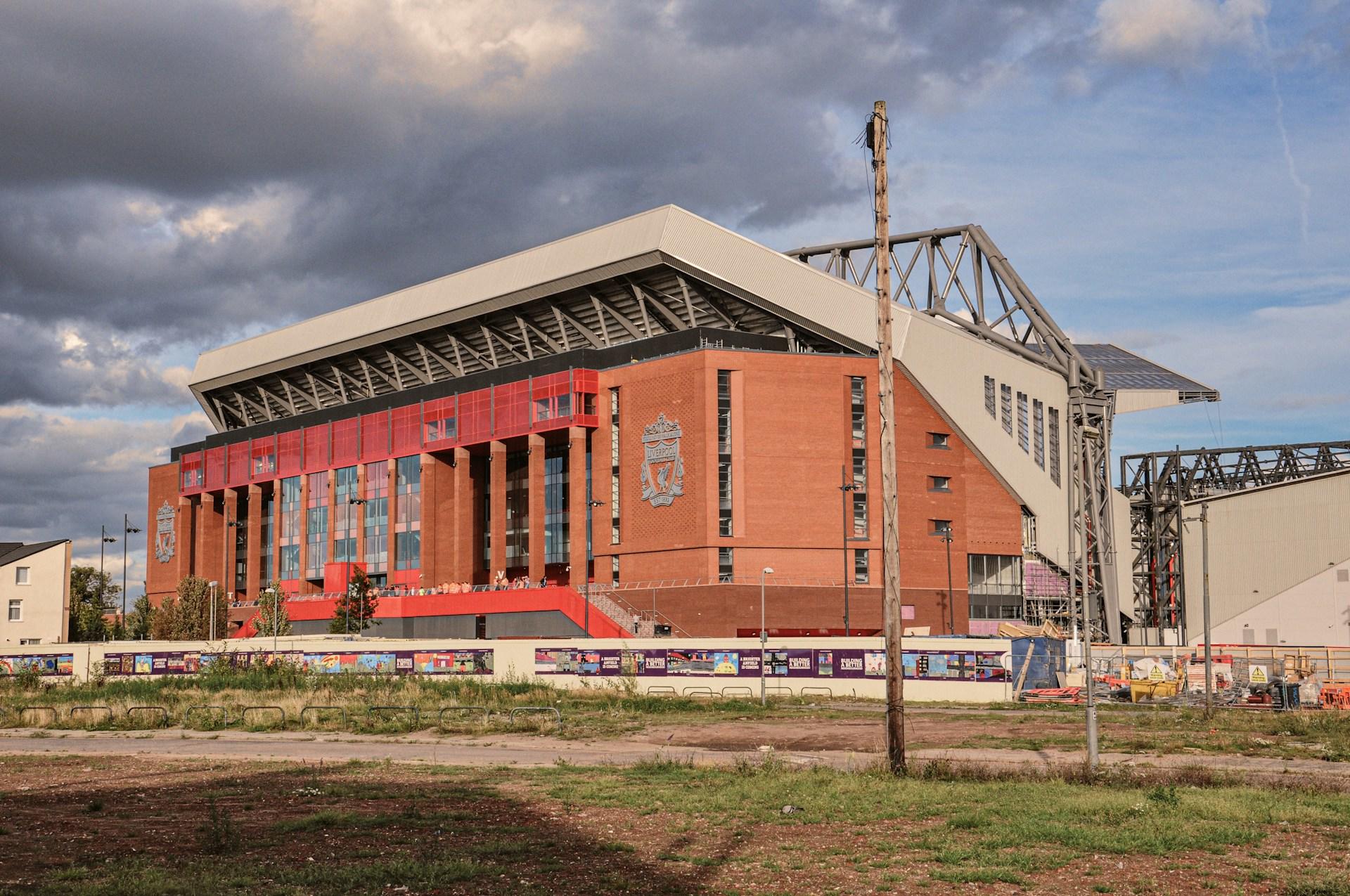In the UK, the word "scouse" is an adjective that refers to something from Liverpool. "Scouser" or "Liverpudlian" are nouns for a person from Liverpool.
The Scousers and Liverpool are interesting, and so are their dialect and accent. Here's our guide to the Liverpool or Scouse accent and how it sounds.

Where is the Scouse Accent Spoken?
Linguists call the accents found in and around Liverpool the Scouse or Merseyside accents.
The accent is predominantly spoken in Liverpool, northern England, and the surrounding Liverpool City Region.
However, like many accents and dialects, there isn't a clear border where people immediately stop speaking one way and start speaking another. Instead, accents and dialects are typically on a continuum with blurrier boundaries.
Since somebody's dialect and accent are part of their identity, there are often heated debates over what exactly counts as a "Scouser". For instance, some argue that only those within the Liverpool city council boundaries (whose bins or trashcans are purple) should be counted as Scousers, while others believe that anyone who has lived in Liverpool for a significant period should be considered a Scouser.
Those outside of these boundaries are sometimes called "plastic scousers" or "woolyback", the latter being a person who travelled in and out of the towns or villages across Lancashire and Cheshire, neither of which constitute Liverpool.
The accent doesn't follow these rules as strictly and instead can extend outside of the Liverpool City Council borders, especially within families who've moved outside these areas. After all, accents are passed on to people and exist because people talk to one another in a certain way.
So, where exactly is the Merseyside accent spoken?
Definitely in the Liverpool City Region and a bit outside of it, depending on who you are.
Why Are People from Liverpool Called Scousers?
For many people across the UK, the word for someone from a particular place (known as a demonym) is weird.

For example, people from Birmingham are called Brummies, people from Manchester are Mancunians or Mancs, and people from Newcastle are Geordies.
People from Liverpool can be called Liverpudlians or Scousers (or just their names if you want). While Liverpudlian is etymologically related to the city's name, where does "Scouse" come from?
The adage "you are what you eat" is particularly true here. It's the reason that Brits are called "limeys" (the Royal Navy would add lime juice to sailors' grog) or "rosbif" in French (the term for Roast Beef). Conversely, the term "frog" for French people naturally originates from frogs' legs being eaten in France.
So what about Liverpool? Well, the Liverpudlians are supposedly called “scousers” because of “scouse”, which comes from the Scandinavian “lobscouse”. This hearty stew of beef, lamb, chicken, pork, or ham with potatoes and other vegetables is either called “lobscouse”, “lapskaus”, “labskovs”, “lapskojs”, “lapskoussi”, or “labskaus”, depending on which Scandinavian or Germanic country you're in.
The word "Scouse" comes from a Scandinavian sailor's stew.
The stew was often associated with and eaten by sailors. Since Liverpool is a port city, the dish became so heavily associated with Liverpudlians that they even took on the name.

Characteristics of the Scouse Accent
So now that you know where the Scouse accent is spoken and why it's called Scouse, let's take a look at how Scouse or Merseyside English sounds.
The Scouse accent, with its unique linguistic characteristics, stands out significantly against any other local accent or dialect in England, making it a fascinating subject to explore.
However, in many ways, the sound of the scouse accent and the various features of the dialect make it stand out significantly against any other local accent or dialect in England. Influences from Irish, Welsh, and Scottish accents have all played a part in this accent's unique sound.
Scouse has quite a famous sing-song intonation, unlike the Birmingham accent, which is more famous for sounding flatter.
Here's a fun video of a Scouser teaching foreign learners of English how to speak Scouse.
Consonants in the Scouse Accent
The Liverpool accent features a distinct pronunciation of consonants, with 't-glottalisation' being a notable feature, similar to American English in some aspects.
Now, forget that because Scouse is nothing like American English.
Many of the “th” sounds in Merseyside English accents are pronounced more like a “t” or a “d” in other words.
The "s" in a Scouse accent is also particularly sharp compared to other English accents from around the UK.

Vowels in the Scouse Accent
Except for Scouse, where many of the consonants are different from other nearby accents, most accents are noticeable because of how the pronunciation of vowels differs.
Scouse is no exception here, and several vowel pronunciations make the accent distinctive.
One particular feature is the square-nurse merger. In linguistics, a merger is when two words that usually use different pronunciations in some accents are pronounced the same.
In Scouse, the vowels in 'square' and 'nurse' are pronounced exactly the same. This means words like 'stair' and 'stir' and 'pair' and 'purr' are pronounced the same. In other words, in the Scouse accent, certain vowel sounds are merged, making some words sound the same.
The other vowel changes are tricky to explain without first learning the international phonetic alphabet. Instead, we recommend listening to plenty of examples of the accent from famous people who use it.

Scouse Vocabulary
When we mention vocabulary, we're talking about the Scouse dialect rather than the accent. In linguistics, a dialect includes grammatical structures, vocabulary, and the accent. An accent is simply the way words are pronounced.
Across England and the UK, there are plenty of different dialects, each with its own words that are either unique to the dialect or shared with just a handful of other neighbouring or related accents.
Liverpool has plenty of interesting ones, so here are a few to get you started. Not all of these are unique to the Liverpudlian or Merseyside dialect as Welsh dialects and other neighbouring dialects tend to share vocabulary, but this list is specifically Scouse.
| Word | Meaning |
|---|---|
| Aintree Iron | Nonsense, rubbish |
| Antwacky | Old-fashioned, out of date |
| Arl arse | Someone who thinks they know everything |
| Bevvy | Drink, usually alcoholic |
| Bizzies | Police officers |
| Boss | Excellent, great |
| Brekkie | Breakfast |
| Butty | Sandwich |
| Chocka | Very busy or full |
| Cob on | Bad mood |
| Dead | Very (e.g., "dead good" means very good) |
| Divvy | Idiot, fool |
| Dockers' clutch | Grabbing someone by the collar |
| Eee arr | Here you are (giving something to someone) |
| Gaff | House, home |
| Geg in | To interfere in someone else's business |
| Get off | To stop annoying someone |
| Gorra cob on | In a bad mood |
| Gozzy | Cross-eyed |
| Jarg | Fake, not genuine |
| Jammy | Lucky |
| Jib it | To avoid something |
| Kidda | Friend, mate |
| La | Term of endearment or emphasis (often used at the end of sentences) |
| Lemo | Lemonade |
| Lid | Hat |
| Mersey Trout | Lobscouse, a type of stew |
| Ozzy | Hospital |
| Proper boss | Really good |
| Sag | Sit down |
| Scran | Food |
| Scally | Young troublemaker, usually a petty criminal |
| Scouse | Stew; also refers to the Liverpool accent and people from Liverpool |
| Sken | To look at, to see |
| Slummy | Jam sandwich |
| Sound | Good, okay |
| Spawny | Lucky |
| Tampin' | Very angry |
| Togs | Clothes |
| Wool | Someone from outside of Liverpool, especially from surrounding areas like Wirral or Cheshire |
Famous Scouse Speakers
Listening to the Scouse accent is not just about familiarising yourself with the pronunciations and vocabulary, but it's also a way to immerse yourself in its unique intonation and various scouse accents, making it an engaging learning experience.
The Beatles
The Fab Four were famously from Liverpool, and all spoke using a scouse accent.
John Lennon, Paul McCartney, George Harrison, and Ringo Starr had recognisable Liverpudlian accents.
However, if you think these accents sound different from some other examples, remember that The Beatles spoke with south Liverpool accents.
The north Liverpool accent is what we typically refer to as Scouse outside of Liverpool. Both variants of the Liverpool accent have many shared linguistic features, but like any accent, they belong to a larger family and can also be further divided into variants.
Many cities in the UK can have several accents, particularly the capital, resulting in several London accents.
Footballers
Liverpool is a city that loves football (soccer) and naturally produces many football players who speak using a Liverpudlian or Merseyside dialect.
Famous examples include Steven Gerrard, who played for Liverpool and has managed Rangers, Aston Villa, and Al-Ettifaq. His arrival at Al-Ettifaq resulted in plenty of memes as his welcome video in which he spoke in Arabic still had all the hallmark features of his scouse accent.
Liverpool footballer Jamie Carragher is another example. He also played for Liverpool as a defender. After his career as a football player, he moved into football punditry and is often on TV talking about football in his Scouse accent.
Jamie Carragher often has to interview footballers from around the world, not that they understand him.
Wayne Rooney is a football player from Liverpool who played for Manchester United, Everton (another team in Liverpool), DC United, and Derby County. After playing football, he also moved into management. His accent can be heard in his documentary, which was heavily criticised for how strong it was. Despite spending years in Manchester, he never picked up a Mancunian accent and still speaks with a broad Liverpool accent.

Learn More About English Accents with a Private Tutor
If you'd like to learn more about the Scouse accent or any other accent in English, consider working with a private tutor.
Whether you want to learn more because you're learning English or are interested in the accent because you're an actor, you can search for tutors on the Superprof website.
While you mightn't be able to find any native Liverpudlians where you are, you can also search for tutors online and get online tutoring from native Scousers!
We recommend searching for English or linguistics tutors or accent coaches to learn more about different English dialects and accents.
Many of the tutors and coaches on the Superprof site offer the first session for free, so try a few out before finding the right one for you and deciding what you'd like to learn.
Summarise with AI:
















